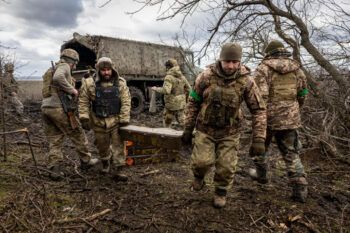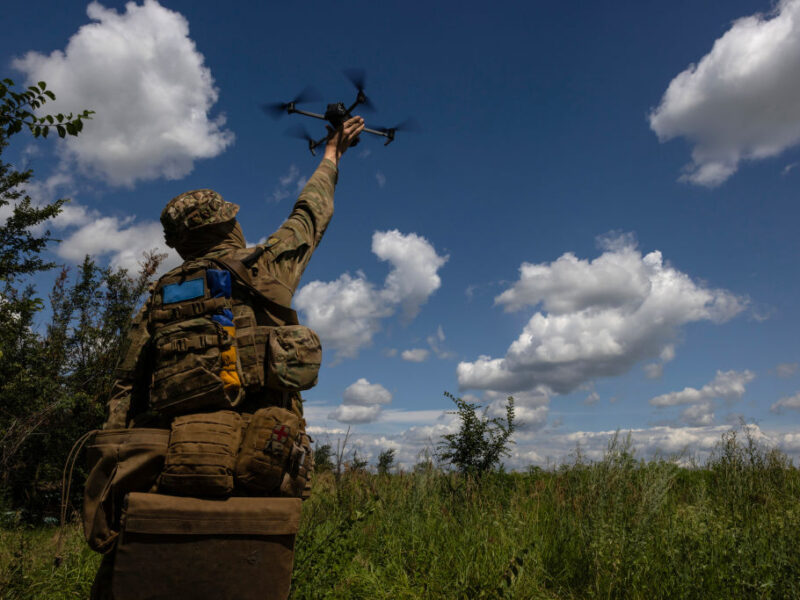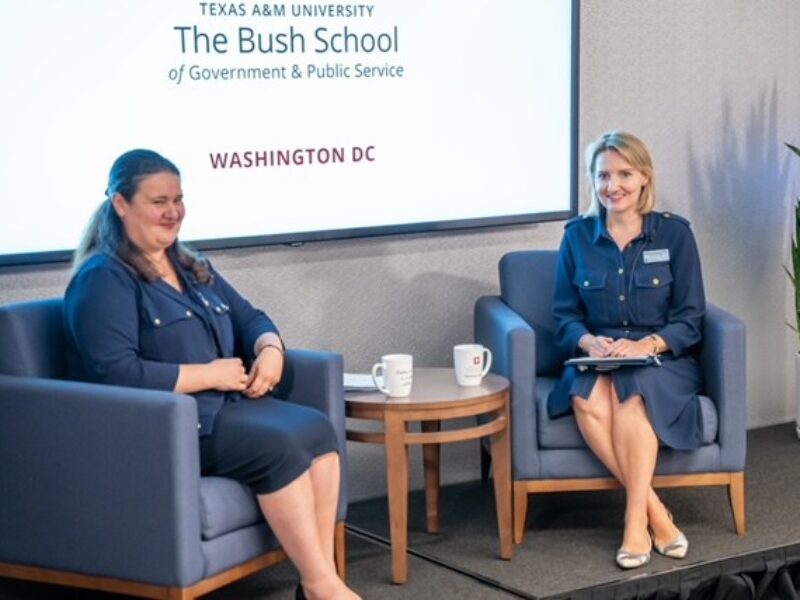Are We Heading For World War III? Texas A&M Experts Say It’s Unlikely

Rising geopolitical tensions, the ongoing wars in Ukraine and Gaza, and a number of armed skirmishes elsewhere have put much of the international community on edge in recent months, fueling speculation that the world may be heading for a broader global conflict.
In January, the outgoing head of the British army, Gen. Patrick Sanders, raised eyebrows when he said U.K. citizens should be prepared to form a “citizen army” in the event of war between NATO members and Russia, evoking similar policies of conscription used in World War I and World War II. A number of Western media outlets have drawn direct comparisons between the current geopolitical situation and the events that preceded those wars, highlighting the role of competing alliances, economic tensions and disputes over borders and territory.
While Downing Street was quick to walk back Sanders’ statements — a spokesperson for Prime Minister Rishi Sunak called them “not helpful” — concerns about a new global war originating from conflicts in Europe and the Middle East have continued to circulate. An analysis from Bloomberg shows that references to World War III in news stories recently hit a 16-month high.
So, is the world really veering toward another world war? Texas A&M Today asked Dr. Jasen Castillo and Dr. John Schuessler, associate professors of international affairs at Texas A&M University’s Bush School of Government and Public Service. Castillo and Schuessler are co-directors of the Bush School’s Albritton Center for Grand Strategy.
What Makes A War A ‘World War’?
Though it’s only been used twice, the specific term “world war” applies to armed conflicts between major world powers spanning multiple regions of the globe, Schuessler said. Therefore, our notions of what a world war might look like are largely dependent on who the “great powers” of our era are, their relative military capabilities, and where they are located geographically.
During the height of the Cold War, for instance, Americans had a clear picture of what a “World War III” would entail — a deadly contest between East and West pitting the United States and its allies against a well-armed Soviet Union. “The main front would have been in Europe,” Schuessler said.
The picture we see today is very different, Castillo said, as the post-Soviet Russian state and other modern adversaries of the U.S. don’t pose nearly the same threat as the USSR did.
“The Russian military today is a poor imitation of the Red Army,” Castillo said.
That leaves only China, Schuessler and Castillo said. As the one nation competing with the U.S. for global economic and military supremacy, China — not Russia — would likely be America’s primary opponent in a 21st century world war.
“Today, it is hard to envision a world war that does not pit the United States against China. Whether Russia would align with China in such a war is an open question,” Schuessler said. “Until the U.S. is dragged into a war against China and that war is somehow joined with the ones in Europe and the Middle East, we are not talking about a world war.”
Ultimately, Castillo said, we’re not likely to see such a conflict any time soon. While China may be the closest thing the U.S. has to a Soviet-level rival, it remains to be seen whether the country will actually rise to such heights.
“Down the road, China and the U.S. might engage in a world war,” Castillo said. “But right now, China is not a military peer of the United States, like the Soviet Union was. Further, it’s not clear that China’s economy will continue to develop in a way that would make it a military peer like the Soviet Union.”
If This Isn’t A World War In The Making, Then What Is It?
Even if global war isn’t on the horizon, recent chaos on the world stage is certainly a cause for concern, Schuessler said.
“Americans are not wrong to worry about the United States getting dragged into wars where it is supporting one side against another,” he said. “That said, the U.S. has managed to stay out of the wars in Europe and the Middle East thus far.”
Ultimately, Castillo said, ongoing regional conflicts may be a sign that America’s grip over the rest of the world is starting to slip somewhat. Even if they can’t challenge the U.S. directly, powers like Russia are becoming more willing and able to assert their own geopolitical interests, making it harder for the U.S. to maintain its post-Cold War role as “global sheriff,” he said.
“An era where the U.S. was the only great power was never going to last,” Castillo said. “Now, we live in an era where our adversaries can push back against the liberal international order.”
This marks a return to an older state of global affairs, he said — one in which multiple great powers compete for position on the world stage, and armed disputes over territory and resources are more common.
“What we are seeing is a return to great power politics,” Castillo said. “In concrete terms, this new reality means the United States will have to make hard choices about where and when it uses military power. If we don’t make choices, we risk bankrupting ourselves, fighting non-essential wars that weaken us, or both.”
Media contact: Luke Henkhaus, henkhaus@tamu.edu





